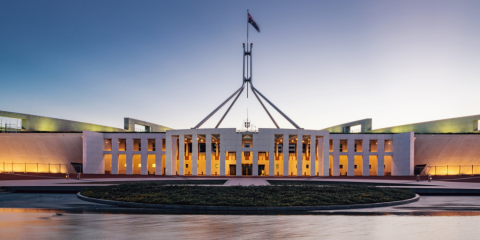The Department of Climate Change, Energy, the Environment and Water (DCCEEW) have released proposed Objectives and Outcomes that a new National Water Agreement (NWA) might include, along with Elements of the 2004 National Water Initiative (NWI) that should continue into the new NWA. The Discussion Paper (under Consultation Documents) invites responses, either with written submissions or a short survey.
WSAA is encouraging utilities and individuals to make submissions by 3 May 2024. The government has indicated to us that it welcomes input from many voices. WSAA will do an overall submission on behalf of the industry, but we encourage you to support and amplify our engagement with additional submissions on this page.
Separately, the Productivity Commission has also released a detailed Interim Report about Australia’s progress on meeting the 2004 NWI. WSAA will respond to this and while utilities can make submissions, we believe submissions to the DCCEEW Discussion Paper are the priority.
Key points – WSAA’s observations
-
The proposed Objectives and Outcomes are a good starting point.
-
The elevation of First Nations interests and values (Objective 2) is commendable and welcome.
-
Climate change and its impacts are acknowledged in the overview, however the escalating scale and pace of impacts could be more apparent in the proposed Objectives and Outcomes.
-
The Outcomes for Objective 1 relating to water security, should include a requirement to consider rainfall-independent sources of supply. Proposed outcome : That all options for secure water supplies are investigated including dams, desalination, water efficiency, groundwater, purified recycled water for drinking, recycled water, rivers, rural-urban trade, scarcity pricing and stormwater, and the results shared transparently with communities. The Productivity Commission’s May 2024 Interim Report supports this with its Key Points stating that all options need to be on the table and transparently assessed, to ensure water security is achieved at least cost.
-
For Objective 6 on trust in water providers, water literacy is also a key outcome as communities need to understand the drivers, risks and trade-offs involved in water planning. Proposed Outcome: All Australians increase their understanding of the natural and urban water cycles; water scarcity; and recognise that water from all sources can contribute to safe and reliable drinking water supplies. This is supported by the Productivity Commission (NWI renewal advice 15.1).
-
The Productivity Commission’s Interim Report makes sound recommendations that should be incorporated more clearly into Objectives 1, 3 and 5: to embed updated Urban Water Planning Principles into the NWI; integrate urban water planning with land use planning; transparently consider all options; incorporate stormwater into pricing frameworks; and recommit to cost-reflective developer charges.
-
We recommend Objective 5, on transparent water investment, build in the Productivity Commission’s Renewal Advice 12.4 to provide transparent community service obligation subsidies where appropriate, eg regional and remote locations.
-
The Objectives and Outcomes should address the urgent skills and training challenges confronting the industry. Proposed outcome for Objective 6: Water service providers have the appropriate skills and capabilities to ensure safe and reliable water and sewerage services for Australian communities.

